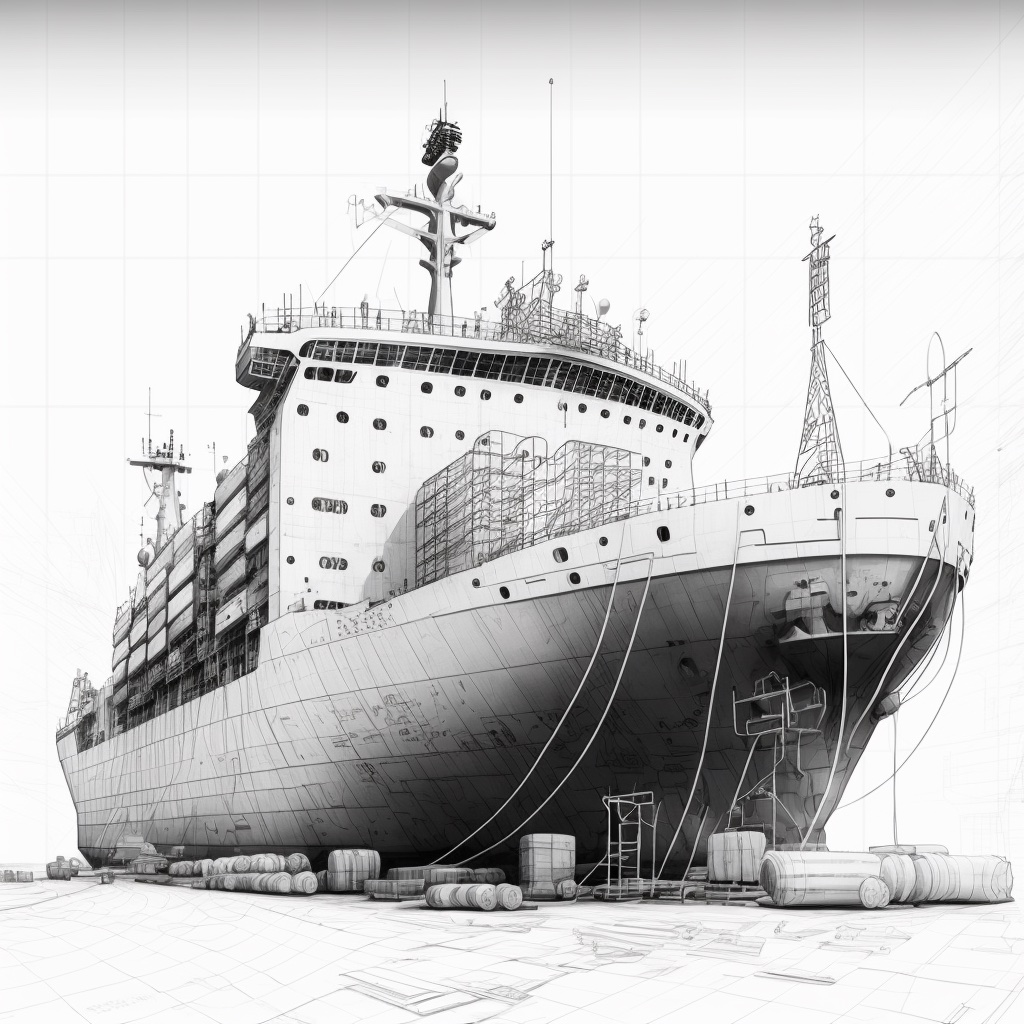The global shipping industry serves as the lifeblood of international trade, facilitating the movement of goods across continents and oceans. Behind the scenes, a complex network of entities operates and controls this vast industry. From shipping companies and alliances to port operators and regulatory bodies, numerous stakeholders play pivotal roles in running and controlling world shipping today. In this article, we shed light on the key players that shape and influence the dynamics of global shipping
Shipping Companies and Operators
Shipping companies and operators form the backbone of the global shipping industry. These entities own, manage, and operate a vast fleet of vessels that transport goods across the world’s seas. Prominent names in this sector include Maersk Line, Mediterranean Shipping Company (MSC), CMA CGM Group, COSCO Shipping, and Hapag-Lloyd. These companies control extensive shipping routes, possess substantial market shares, and manage significant maritime trade volumes.
Shipping Alliances and Consortia
To optimize operations and enhance efficiency, shipping companies form alliances and consortia. These strategic partnerships involve cooperation among multiple carriers to jointly operate shipping services. The three significant alliances dominating the container shipping market are 2M (Maersk and MSC), THE Alliance (Hapag-Lloyd, Ocean Network Express, and Yang Ming), and Ocean Alliance (COSCO Shipping, CMA CGM, Evergreen Line, and OOCL). These alliances allow carriers to leverage shared resources, coordinate schedules, and provide comprehensive global coverage.

Ports and Terminal Operators
Ports serve as vital nodes in the global shipping network, acting as crucial points of entry and exit for cargo. Port authorities, whether public or private, oversee the overall operations of ports, including vessel handling, cargo storage, and intermodal connections. Terminal operators, such as DP World, Hutchison Ports, PSA International, and APM Terminals, manage specific port terminals. These operators invest in infrastructure development, adopt advanced technologies, and optimize logistics processes to enhance port efficiency and attract shipping traffic.
Freight Forwarders and Logistics Providers
Freight forwarders and logistics providers play a crucial role in the seamless movement of goods within the global shipping industry. Acting as intermediaries, they coordinate and manage the transportation of cargo across different modes of transport. Companies like DHL, Kuehne + Nagel, DB Schenker, and Expeditors International specialize in freight forwarding, customs clearance, warehousing, and value-added services. They collaborate with shipping lines, airlines, trucking companies, and other stakeholders to streamline the supply chain and ensure timely delivery.
From our partners:
International Organizations and Regulatory Bodies
The global shipping industry operates within a framework of international regulations and guidelines set by various organizations and bodies. The International Maritime Organization (IMO), a specialized agency of the United Nations, plays a central role in establishing shipping regulations, maritime safety standards, and environmental protocols. Additionally, regional bodies like the European Maritime Safety Agency (EMSA) and the U.S. Federal Maritime Commission (FMC) oversee shipping activities in their respective jurisdictions and ensure compliance with relevant laws.
National Governments and Maritime Authorities
National governments hold significant influence over the global shipping industry through their maritime policies and regulations. Maritime authorities within each country enforce maritime laws, ensure compliance with international standards, and provide essential maritime-related services. These entities issue licenses, permits, and certificates, conduct vessel inspections, certify crew members, and safeguard port security. Countries with notable shipping interests, such as China, Singapore, Greece, and the United States, exert considerable influence on the global shipping landscape.
The world shipping industry is a complex ecosystem with numerous players shaping its operations and exerting control over its various aspects. Shipping companies, alliances, port operators, freight forwarders, regulatory bodies, governments, and maritime authorities all play vital roles in running and controlling global shipping. Collaboration and cooperation among these stakeholders are crucial for maintaining the efficiency, safety, and sustainability of the industry, ensuring the smooth flow of goods that underpins global trade and economic growth.













